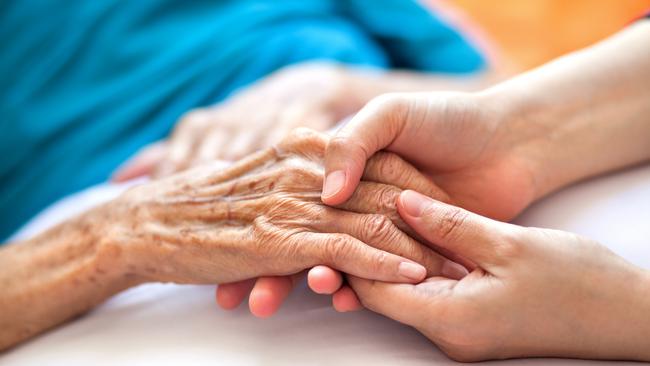Isolation in old age linked to ‘shrinkage of the brain’
Researchers say their findings suggest helping older people to start and maintain social connections could help stave off dementia.

A lack of social contact with friends and family in later life may cause the brain to shrink, a study has found, suggesting that loneliness could play a role in the development of dementia.
Researchers in Japan said their findings suggested that helping older people to “start and maintain” social connections could be “beneficial for preventing brain atrophy and the development of dementia”.
Age UK, which was not connected with the study, said the findings “show us how important social interaction is in our lives”.
Scientists from Kyushu University in Fukuoka examined 8,896 people with an average age of 73 who did not have dementia. They conducted MRI scans and gave them health exams. They also asked how often they had contact with relatives or friends that they do not live with, with the options including: every day, several times a week, several times a month, and seldom.
The study, published in Neurology, the medical journal of the American Academy of Neurology, found that the people who answered “seldom” had a lower brain volume than those with the most social contact.
Among those who saw friends and family daily, the white and grey matter in their brain took up 67.8 per cent of the total volume within the cranium. Among those who rarely did so, their brains took up 67.3 per cent, half a percentage point lower.
This was deemed a significant amount by researchers, particularly because the reduced volume was particularly notable in the hippocampus and amygdala, areas of the brain that play a role in memory and are particularly affected by dementia.
The researchers noted that higher levels of depression experienced by those with little social contact may contribute to the shrinkage of the brain.
Those who were more socially isolated also had more white matter lesions, small abnormalities that show up as bright spots in MRI scans.
Researchers said they could not prove that social isolation directly caused shrinkage or damage to the brain, but Dr Toshiharu Ninomiya, lead author of the study, said: “It’s possible that interventions to improve people’s social isolation could prevent brain volume loss and the dementia that often follows.”
In an editorial accompanying the study, Dr Alexa Walter, from the University of Pennsylvania’s department of neurology, wrote: “Results showed that total brain volume decreased, and white matter lesion volume increased with lower frequency of social contact.”
She wrote that health services should also screen older patients for signs of loneliness, noting that “most older adults report that they have not been asked about social isolation by their healthcare team”.
Caroline Abrahams, a director at Age UK, said the study could not prove that social isolation directly caused brain shrinkage, but said the findings “do provide us with another reason to prioritise social connection with others as we age”. She added: “We know that spending time with others is good for our mood and often means that we are getting out and about more, which is also good for our physical health. Now we have keeping our brains healthy as a very good reason to maintain social interactions.”
The Times






To join the conversation, please log in. Don't have an account? Register
Join the conversation, you are commenting as Logout